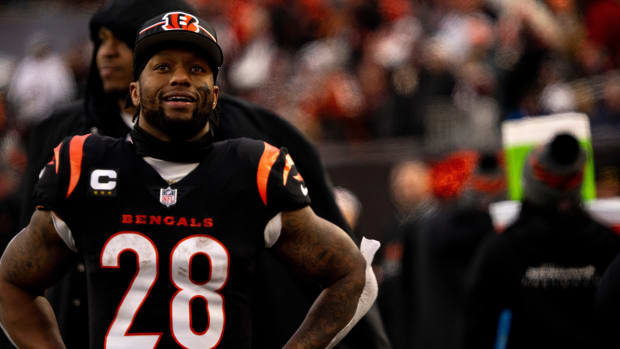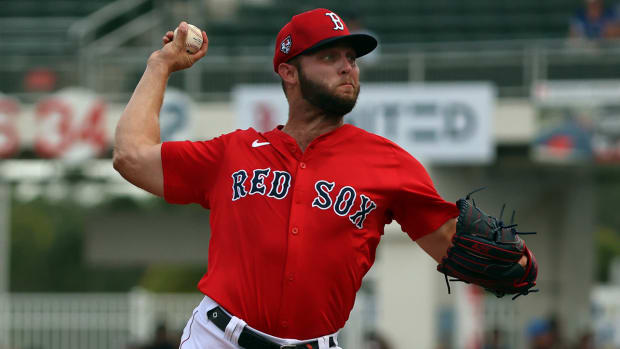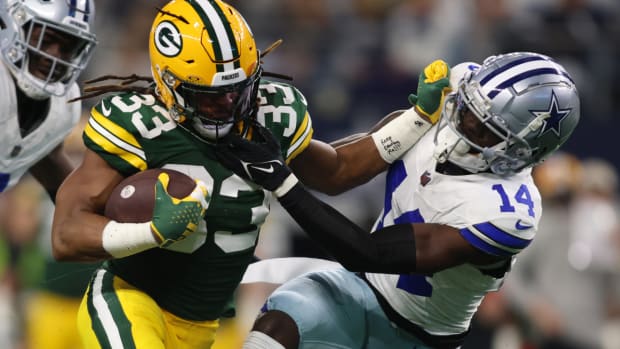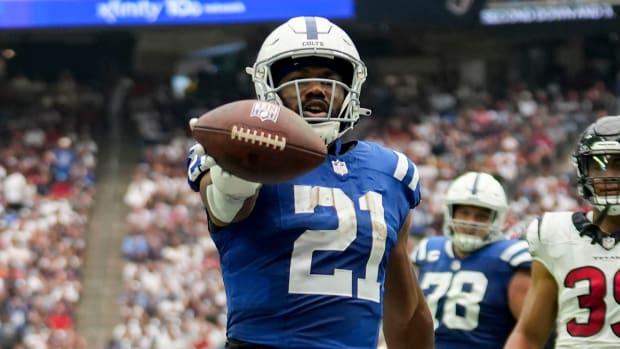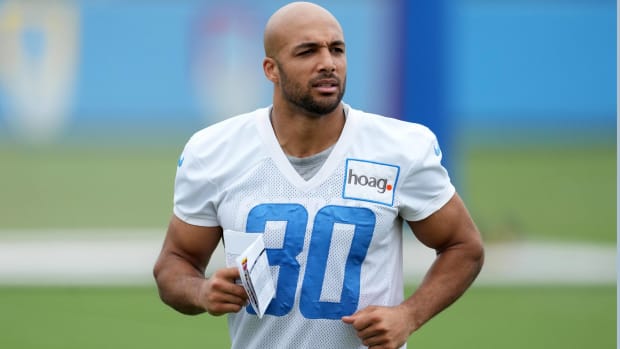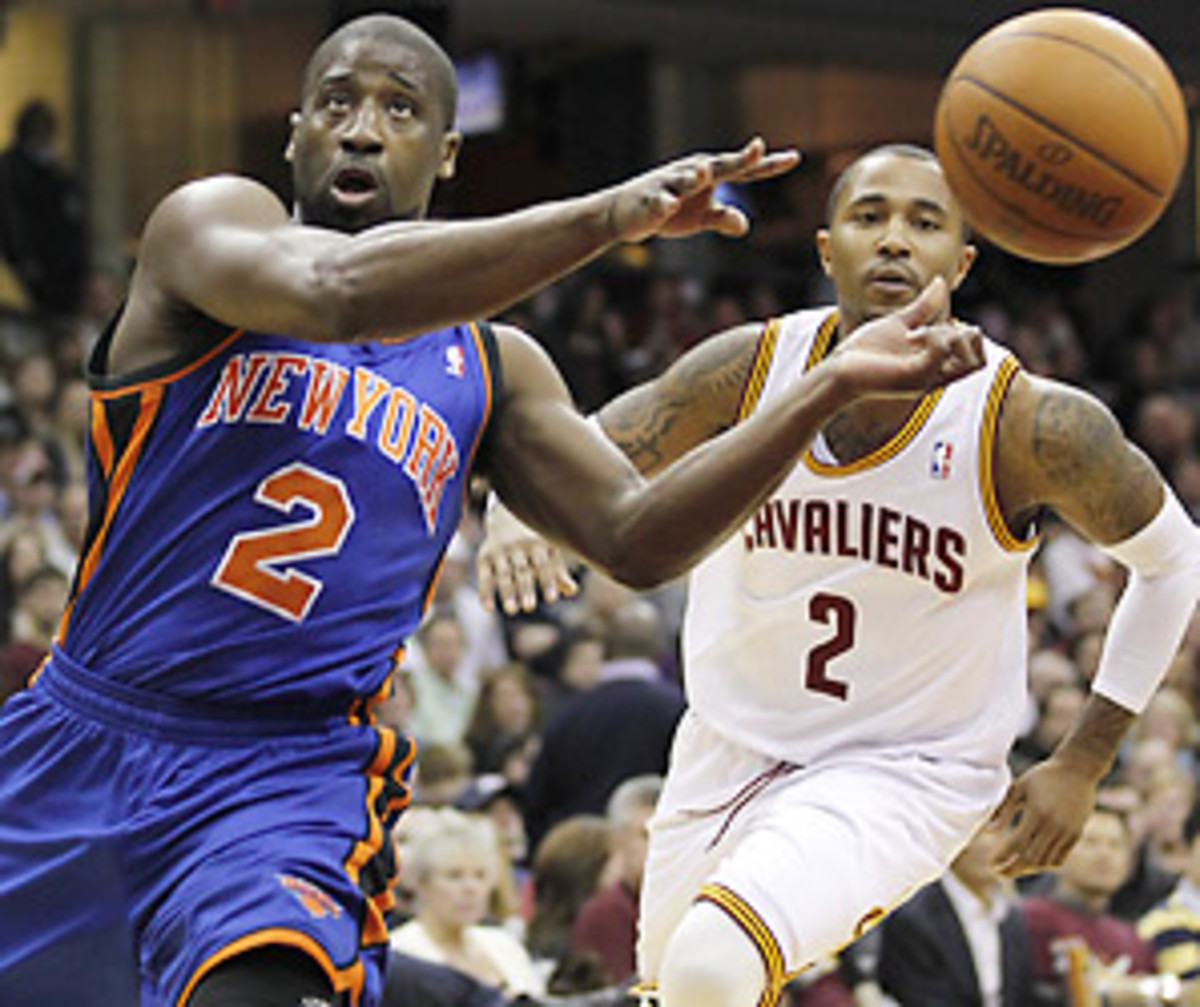
Learn your lesson: Five things to live by in fantasy basketball
1. Coaches matter. More specifically, Mike D'Antoni matters. D'Antoni has coached the Knicks since 2008, although it has taken the team a couple of years to purge itself of the mess left behind by Isiah Thomas. Reunited with Amar'e Stoudemire this season, D'Antoni has the Knicks running like the mid-2000 Phoenix Suns. They are first in the league in points scored per game (107.9) and second in possessions per game (99.3). The results have been a fantasy boon in New York: Stoudemire is putting up stats on par with his best season, Raymond Felton is suddenly a top-five fantasy point guard, Wilson Chandler is a top-20 fantasy player and Landry Fields is putting up numbers that should at least get him in the Rookie of the Year discussion. Thank you, Mike D'Antoni.
In addition, Kurt Rambis' Timberwolves are currently leading the league in possessions per game at 100.7. Unlike the Knicks, Minnesota is near the bottom of the league in offensive efficiency, shooting only 44 percent as a team. All those missed shots don't do much for the Timberwolves and their fantasy value -- although they have helped Kevin Love to lead the league in rebounding by a wide margin.
The Lesson: Other than natural talent and health, nothing affects the fantasy value of players more than coaching.
2. Not all NBA trades have a winner. The four-way summer trade between the Hornets, Pacers, Nets and Rockets was supposed to be a positive for all involved. After a great rookie season filling in for the injured Chris Paul, Darren Collison was expected to slide right in as Indiana's starting point guard. In exchange, New Orleans got a solid wing player in Trevor Ariza, while the Nets received Troy Murphy, who would allow the team to bring Derrick Favors along slowly and give them an expiring contract to use later in the season.
Instead, Collison has looked very much like a 23-year-old struggling to learn a new offensive system. He's splitting time at the point with T.J. Ford and is only averaging 4.1 assists per game this year after averaging 9.1 in 37 starts last season. Ariza is also struggling with his new team, shooting 37 percent from the field. He's one of the least efficient offensive players in the league, and has become a marginal fantasy player despite averaging 34 minutes a game.
Murphy has been the most disappointing of all the players involved in the trade. He was injured to start the year, and then quickly found himself completely out of Avery Johnson's rotation. The Nets likely will trade Murphy, and his situation eventually will improve. But for now those unfortunate fantasy teams who took a chance on Murphy got the biggest disappointment of the season: a top 50 fantasy pick who is currently averaging 17 minutes and 3.5 points a game off the bench for the Nets.
The Lesson: Don't overvalue players involved in a trade based on their most optimistic projections.
3. Players don't always improve their second season. Both Stephen Curry and Tyreke Evans had amazing rookie seasons. They almost immediately became integral parts of their teams' offense systems and surpassed all expectations. But fantasy owners who drafted Curry or Evans expecting them to improve this season have been disappointed. Evans has been hampered by plantar fasciitis, and it has clearly affected his game. He's shooting only 38 percent from the field and his scoring has dropped nearly four points a game from his rookie season. Unlike Evans, Curry has performed up to expectations when he's been on the court despite some growing pains while learning the point guard position. However, the second year guard has already missed eight of the Warriors' first 29 games after spraining the same ankle multiple times. He returned to the court this past Saturday despite admitting his ankle was only about 85 percent, which is the same strategy that caused him to reinjure his ankle at the beginning of December.
The Lesson: Just because a player has a great rookie season doesn't mean they'll be better the next year.
4. Players don't always improve their third season. The term "third-year bump" refers to the jump that many players take during their third season in the league. However, some players don't experience a bump at all. Some, like Brook Lopez and O.J. Mayo, actually regress their third year in the league. Lopez in particular has been a frustrating case. He was considered a top tier fantasy center going into the season after averaging close to 19 points and nine rebounds a game 2009-10. But Lopez has been playing further away from the basket this season and is often outside the lane when he receives the ball. His positioning away from the basket has caused his field goal percentage (45 percent) and rebounding (6.2) numbers to drop to a career lows. In fact, Lopez has the second-worst rebounding rate among all centers getting more than 20 minutes a game this season. He's only a slightly better rebounder than Andrea Bargnani at this point.
The Lesson: Beware of third year players whose second season was flat compared to their rookie year.
5. Just stay away from players with chronic injuries. Brandon Roy, Yao Ming and Greg Oden were drafted in a majority of fantasy leagues this season as high-risk, high-reward picks. But just two months into the season and all three players have failed to contribute to fantasy teams in a meaningful way. After playing in just five games over the first two months of the season, Yao is out for the rest of the season -- and perhaps his career -- after suffering a stress fracture in his foot.
Before the start of the season, Oden's original timetable put him back on the court at the beginning of December. Instead a knee injury ended his season before he could even play in his first game. Roy is struggling to play through pain and swelling in his left knee. He is currently out to rest that knee and is expected to miss at least another week with the injury, if not longer.
The Lesson: There is a difference between accidental injuries (getting Wilson Chandler's tooth stuck in a David Lee's elbow) and recurring injuries (multiple stress fractures in the same foot). Avoid players with recurring injuries.

































